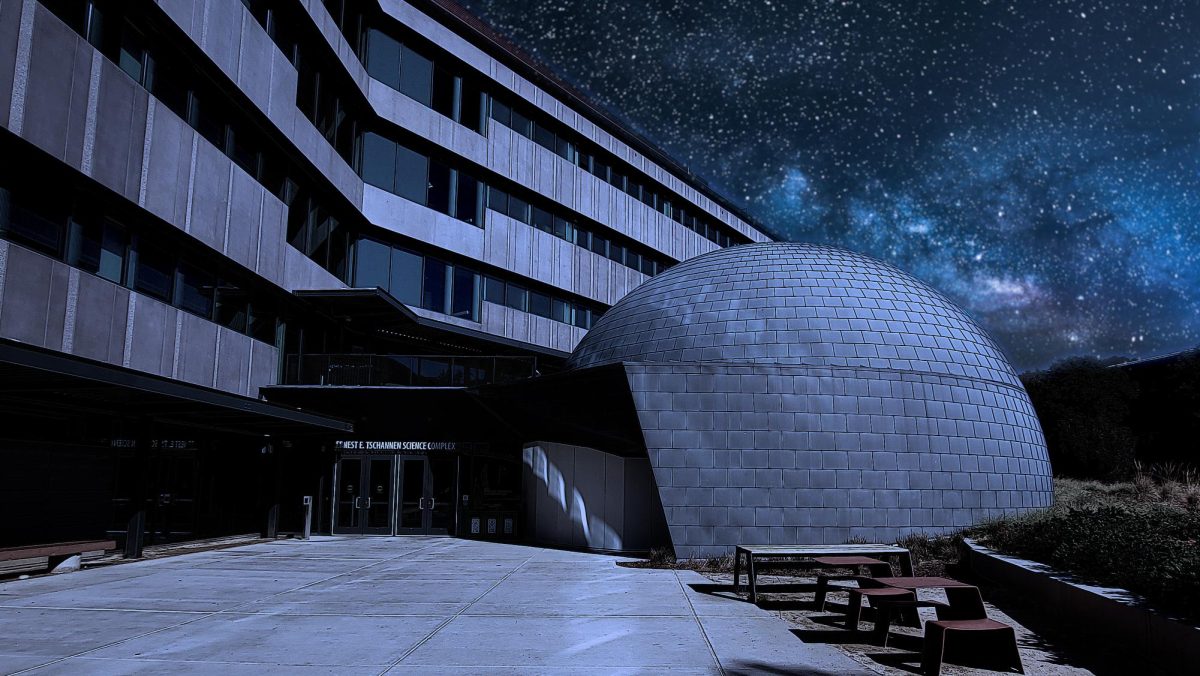Awareness is raised on the importance of recycling and composting
May 10, 2014
For National Compost Awareness Week, the Green Restaurant Alliance of Sacramento teamed up with the Recycling and Solid Waste Department to host the fifth annual Foodcycle and Compost Festival behind Hot Italian pizzeria Thursday night.
The event raised awareness about the importance of urban composting for businesses, community gardens, and individual households.
“You could argue that Sacramento is having a bit of a compost crisis now,” GRAS Director David Baker said. “Healthy soil is a precious resource that will run out before long if it’s not managed and cared for properly.”
According to Baker, composting is a method of recycling where used organic matter, such as newspaper, vegetable and fruit scraps, coffee grounds and leaf foliage are churned together with activators like a nitrogen source and left to decompose over a period of time.
It then allows nutrient rich microbes to break the matter down into a soil which is then spread onto garden plots.
While Sacramento may be the Farm-to Fork Capital, it does not have a set program for the composting of food waste generated by its local restaurants.
“New York City has 221 designated compost sites, and both San Jose and San Francisco require the composting of all organic matter,” Baker said. “Sacramento doesn’t have that kind of organized system outside of what we do with our community gardens, and that’s something that needs to change.”
Co-owner of Worm Fancy Richard Waldo, a local vermicomposting business, said if all the households in the Sacramento area composted their table scraps instead of throwing them away, nearly 78,000 tons of waste would be kept out of landfills annually.
“If you add restaurants and schools to that equation, it reduces landfill waste by 250,000 tons, which adds 75 years to the lifespan of a landfill, which is better than the currently projected 20 year lifespan.” Richard Waldo said. “Everyone doing their half percent can make such a difference.”
Waldo and his wife Kate Waldo started their compost worm distribution business in 2010 and have attended the Foodcycle and Compost Festival since its start.
“We’re always holding seminars and workshops for schools and businesses about how to vermicompost,” Kate Waldo said. “Working with GRAS at this event is a good way to spread ideas, and get new ideas about composting as well.”
Guests were invited to take free seed packets and cuttings from various booths, as well as take home containers of fresh free compost.
Rosemont High School’s Culinary Program provided the guests with fresh bread and hummus made from ingredients grown in the school’s garden.
Course instructor,Scott Singer, said he brings his students to this event to teach them the importance of renewal and sustainability in a restaurant setting.
“We want the students to understand the full cycle of things,” Singer said. “It’s very much a part of the ethics of being in the food industry, the idea that nothing is ever wasted.”
Baker is currently working with the restaurants such as Selland’s, Ella, OneSpeed, Magpie Caterers and The Kitchen in a coalition to work with the city on creating a standard local compost system that works with local schools,businesses, community gardens and farms.
“We need to develop a localized infrastructure between businesses and local gardens,” Baker said. “We used to have a semblance of a compost collection program with Atlas Disposal, but recent uses of compost as a source for bio-fuel has made things a bit complicated.”
With the resurgence of the urban agriculture trend and Sacramento’s increased public consciousness for ethically and locally sourced food, the sustainability of the delta’s natural resources starts with compost.
“Sacramento is all about being the Farm to Fork capital,” Singer said. “It would be great if that cycle continued to completion and became Fork to Farm as well.”


























































































































